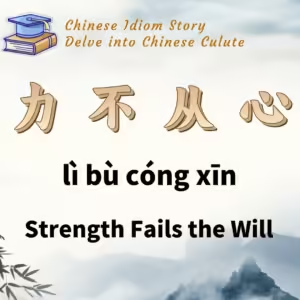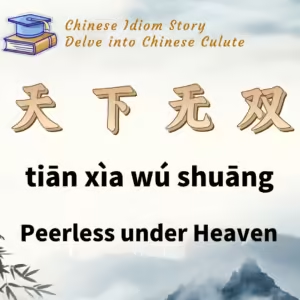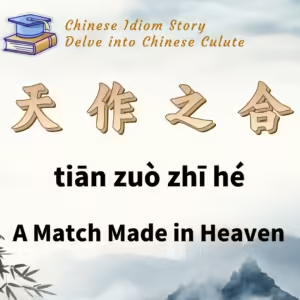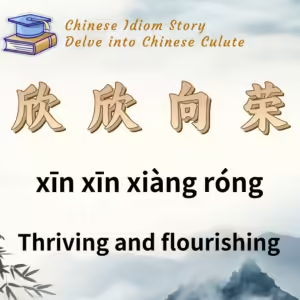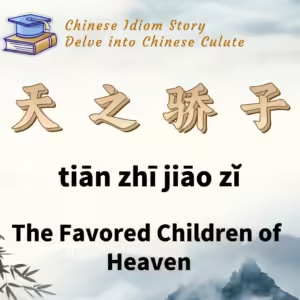
Chinese Idiom: 天之骄子 (Tian Zhi Jiao Zi)
English Translation: The Favored Children of Heaven
pīn yīn: tiān zhī jiāo zǐ
Idiom Meaning: This idiom originally referred to the powerful and thriving minority groups in border regions, especially those who were strong and influential. “骄子” means “favored children,” indicating those who are privileged or specially blessed.
Historical Source: “The Book of Han,” Xiongnu Biography (《汉书·匈奴传》).
Idiom Story
From the end of the Qin Dynasty to the early Han Dynasty, the Xiongnu, a nomadic tribe from the north, frequently conquered various ethnic groups in northern, western, and northeastern China. They often invaded Han Chinese territories, posing a significant threat. When the Han Dynasty was established, its founding emperor, Liu Bang, personally led an army of 300,000 to fight the Xiongnu. However, he was besieged for seven days and nights and narrowly escaped.
Subsequent Han emperors avoided direct confrontation with the Xiongnu. However, when Emperor Wu of Han, a ruler known for his ambitious and strategic mindset, ascended to the throne, he decided to eliminate this threat. During his reign, he dispatched generals such as Han Anguo, Wei Qing, and Huo Qubing to launch several successful campaigns against the Xiongnu.
In 90 BCE, the Xiongnu Chanyu (leader) Huniu Shan once again invaded Han territories, plundering and killing officials. Outraged, Emperor Wu sent General Li Guangli with 70,000 soldiers, Yushi Dafu Shangqiu Cheng with 30,000 soldiers, and General Wang Tong with 40,000 soldiers to retaliate.
Upon learning of the advancing Han forces, Huniu Shan abandoned heavy military equipment and forced the people to relocate. The three Han armies entered the Xiongnu-controlled areas. Shangqiu Cheng’s troops fought the Xiongnu for nine days, suffering mutual casualties; Wang Tong’s troops did not engage as the Xiongnu had retreated; Li Guangli’s troops defeated the Xiongnu and pursued them northward.
However, news reached Li Guangli that his family members had been imprisoned for crimes. Concerned, Li Guangli was advised to penetrate deeper into Xiongnu territory to achieve greater military success and use it to absolve his family’s guilt. He continued north and won significant victories, killing the Xiongnu’s left general.
Despite abandoning heavy equipment, Huniu Shan’s forces remained largely intact. When Li Guangli’s forces were depleted, Huniu Shan led 50,000 cavalry to attack, resulting in a devastating defeat for the Han army. Li Guangli surrendered, and Huniu Shan married his daughter to him. However, a year later, Li Guangli was killed due to the jealousy of another former Han envoy, Wei Lü, who had defected to the Xiongnu.
As a result, the three Han armies suffered heavy losses and failed to achieve their objective of repelling the Xiongnu. The Chanyu sent an envoy to Emperor Wu, saying, “In the south, there is the great Han; in the north, there is the powerful Xiongnu. Do you know what we Xiongnu are? We are the favored children of Heaven!” The Chanyu demanded that Emperor Wu open the border, allowing the Xiongnu to marry Han women and receive annual gifts of wine, millet, and silk. Recognizing the difficulty of eliminating these “favored children of Heaven,” Emperor Wu considered peace negotiations. He soon died, and the Han and Xiongnu continued a cycle of war and peace for many years.


